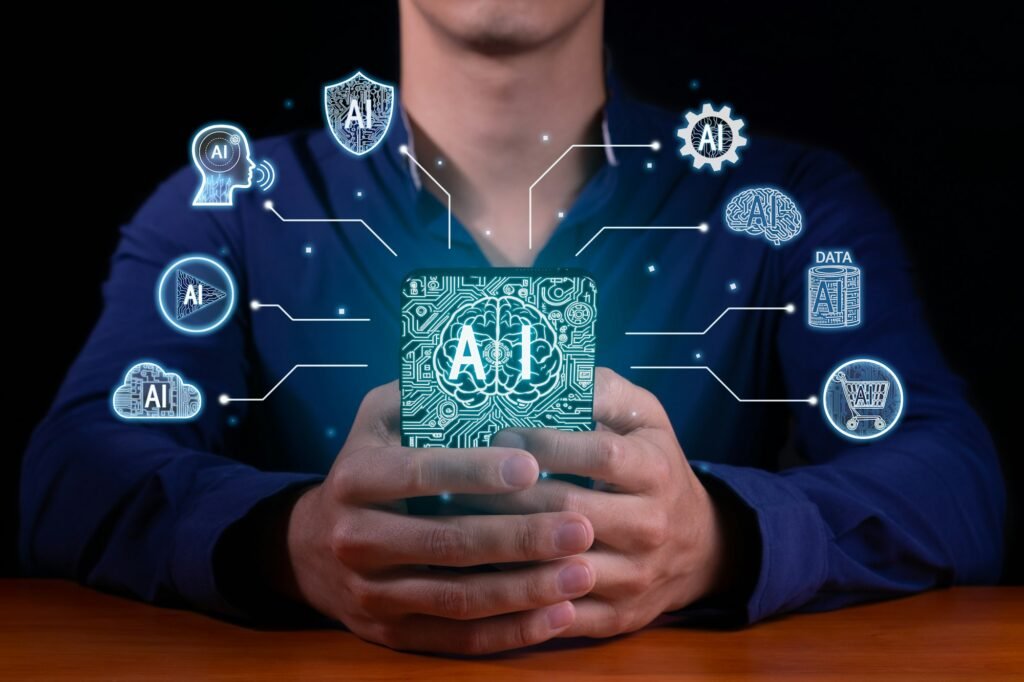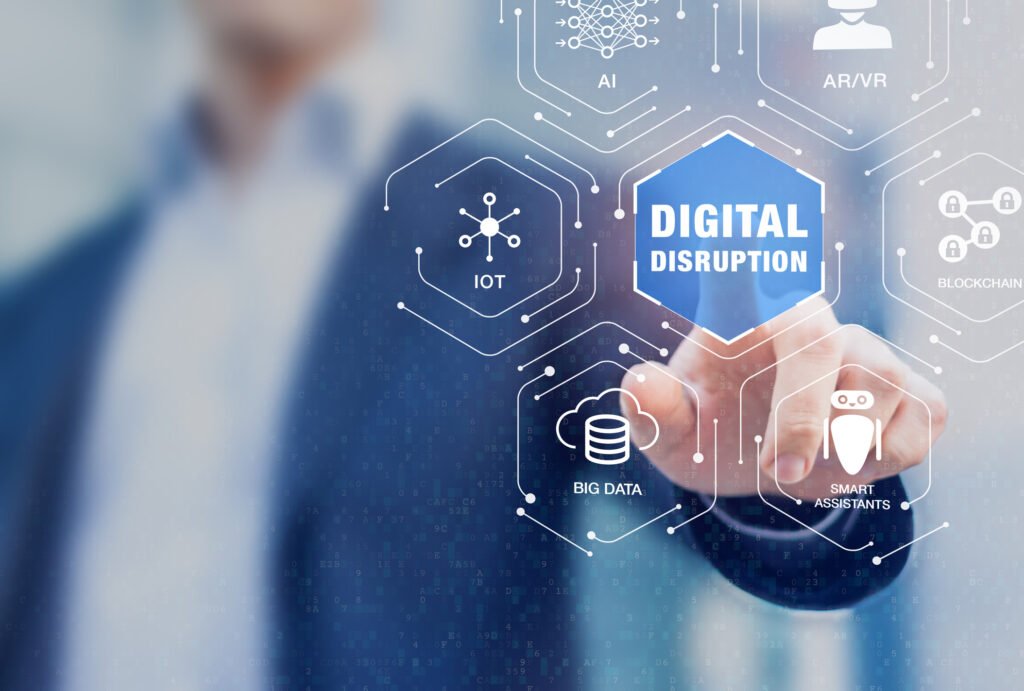Shaping New Business Frontiers Technology is both the disruptor and the disruptor of disruptors in the dynamic world of modern business. While businesses such as Uber and Airbnb transformed conventional sectors, they are currently confronting a new wave of technological innovations that have the potential to completely reshape the market. This article discusses how emerging technologies are altering corporate frontiers, challenging traditional disruptors, and creating new opportunities and difficulties in the process.

The Disruption Paradigm
Historical Context of Disruption
The word “disruption,” coined by Clayton Christensen, originally described inventions that generate new value networks and marketplaces, eventually upending long-standing industry leaders. The advent of personal computers upending mainframes and digital photography upending film are two early instances.
The Role of Technology in Disruption
Innovations in the recent few decades have changed a variety of industries, including retail, finance, and entertainment. Examples of these include the internet, mobile computing, and social media. Investigating the latest wave of disruptions is made easier by solidly understanding how emerging technologies challenge established business paradigms.
Emerging Technologies and Their Disruptive Potential
Artificial Intelligence (AI)
Automation and Artificial Intelligence Automation powered by AI is revolutionizing industries by increasing productivity and cutting expenses. AI is automating monotonous jobs and streamlining processes across industries, from manufacturing to services, forcing businesses to change or face becoming obsolete.
Blockchain Technology
Decentralized Governance and Openness Blockchain technology provides transparent and decentralized record-keeping and transaction systems. In the areas of contract execution, supply chain management, and finance, it challenges established centralized paradigms while fostering trust and lowering fraud.

Case Studies of Disrupting the Disruptors
AI-Powered Startups
Take UiPath, for instance. Leading robotic process automation (RPA) company UiPath is revolutionizing how companies manage routine work. Establishing new benchmarks for operational efficiency.
Blockchain Innovations
By upending established supply chain patterns, this innovation fosters efficiency and trust.

Future Outlook
Anticipated Technological Trends
Sustained Development of AI AI will keep developing as long as advances in autonomous systems, machine learning, and natural language processing continue.
Implications for Business Strategy
Modification of Strategy Companies need to modify their approaches to utilize new technologies properly. This entails making technological investments, encouraging innovation, and keeping up with market developments.

Conclusion
Emerging technologies are posing new opportunities and challenges for organizations in addition to upending established disruptors. These technologies—from 5G and quantum computing to AI and blockchain—are redefining success and influencing how businesses will operate in the future. Organizations that adopt these technologies and modify their approaches correspondingly will be in a strong position to spearhead the emerging business landscape. Maintaining knowledge and adaptability in this fast-paced technology age will be essential to our long-term success.
FAQs…
What does “disrupting the disruptors” mean in the context of business technology?
The phrase “disrupting the disruptors” describes how once-innovative or disruptive businesses and sectors are being challenged and transformed by rising technologies. While businesses such as Uber and Airbnb were industry disruptors, they now face new waves of technical breakthroughs (e.g., blockchain, AI) that have the potential to threaten or change their business models.
How is artificial intelligence (AI) disrupting current business models?
Because AI can automate jobs, improve decision-making, and personalize customer experiences, it is upending established business structures. Businesses can use it to swiftly evaluate enormous volumes of data, streamline processes, and develop unique products that cater to the needs of specific clients. AI-driven automation affects conventional workflows and employment positions as well, forcing businesses to change or reconsider their approaches.
What are smart contracts and how do they impact traditional business practices?
Smart contracts are self-executing agreements that are directly encoded into a blockchain’s code. When certain requirements are satisfied, they automatically carry out and enforce agreements. This technology puts existing legal and contract management processes to the test by decreasing the need for middlemen, increasing transparency, and lowering the danger of fraud.

